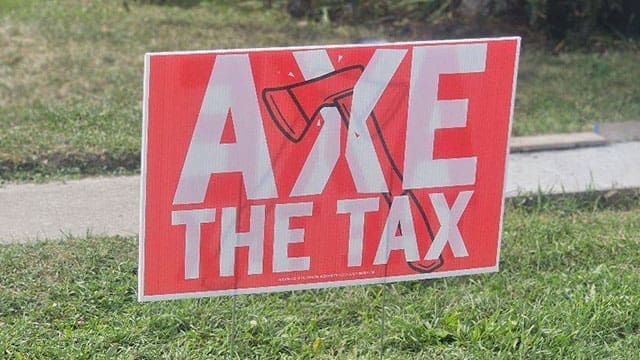His mix of personal conviction, economic focus, and media savvy has already left a significant mark on the political landscape

For interview requests, click here
In Canadian politics, few figures stir up as much animosity from the left as Conservative leader Pierre Poilievre. Recently, Andrew Lawton, journalist and author of Pierre Poilievre: A Political Life, shared his insights into Poilievre’s personal and political evolution in an engaging podcast interview I had with him. Lawton’s take on Poilievre goes beyond headlines, giving us a deeper look at the man behind the public persona.
According to Lawton, one of the most striking things about Poilievre is his personal story. Born to a teenage mother and later adopted by two schoolteachers in Calgary, his family life became even more unique when his adoptive father came out as gay. Yet, Poilievre keeps these details mostly out of the public eye, refusing to use them as leverage to gain sympathy or votes. For Poilievre, family is central, but he draws a firm line between personal loyalty and public life. As Lawton describes, this shows a leader more interested in policy than in playing up personal narratives for political gain.
Lawton also pointed out that freedom, the heart of Poilievre’s political philosophy, isn’t just a recent talking point. Poilievre’s commitment to freedom has been a driving force in his career, and it’s how he’s been able to unite different factions within the Conservative Party. Whether he’s appealing to fiscal conservatives, social conservatives, or rural Canadians, Poilievre frames freedom as the common thread.
| Recommended |
| Poilievre’s confrontational style is chipping away at Canada’s political standards
|
| Who Is Pierre Poilievre really?
|
| I owe Pierre Poilievre an apology
|
It’s a rare consistency in politics, Lawton told me during the podcast. Poilievre, he said, doesn’t chase trends or soften his stance to align with the latest public opinion. He’s stuck to his principles, even when it hasn’t been the easy or popular path. That kind of conviction has earned him both respect and criticism, but it’s clear Poilievre won’t compromise on what he sees as core values.
When it comes to economic policy, Poilievre’s deep knowledge and strong opinions shine through. Lawton highlights that Poilievre is not just talking about fiscal responsibility for the sake of it – he’s done his homework. He’s well-read in economic theory and had even started writing a book on the subject before his political career took off.
For instance, his opposition to the carbon tax has become one of his signature issues, and his “Axe the Tax” slogan has become a rallying cry for conservatives frustrated with rising costs and taxes. Lawton argued that Poilievre’s ability to take complex issues and communicate them in a way that resonates with everyday Canadians is a major part of his appeal.
Poilievre’s tough stance with the media has also shaped his image. Lawton recounted how Poilievre doesn’t just answer journalists’ questions – he often flips the script, questioning the premises of the questions themselves. This assertive, at times combative approach has polarized opinions. Some admire his refusal to be boxed in by narratives set by the media, while others see it as overly aggressive. But either way, it reinforces his image as a politician who won’t back down from a fight.
What really stands out, though, is Poilievre’s connection to the public. His leadership campaign saw massive crowds across Canada, drawing thousands of people who feel left behind by current government policies. Lawton suggested that many of Poilievre’s supporters aren’t just casual fans – they’re people struggling financially and see him as their last hope for meaningful change.
One of the most important points, for me, was Lawton’s belief that if Poilievre were to become prime minister, his administration would likely be marked by bold, sweeping reforms. Poilievre, Lawton said, isn’t one for incremental changes or half-measures – he’s been vocal about the need for significant action to address the big issues Canada is facing, from economic challenges to government overreach.
Poilievre is a different breed of conservative leader. He’s not about maintaining the status quo or making compromises for political expediency. Instead, he’s aiming for transformational change rooted in core conservative values. Whether Poilievre succeeds in this ambition remains to be seen, but as Lawton’s biography clarifies, he’s already reshaped the conversation in Canadian politics.
In a time when many politicians are criticized for being out of touch or too cautious, Poilievre stands out as someone unafraid to push boundaries and challenge the system. His rise is a testament to his resilience and ability to connect with voters hungry for a change in the direction Canada is taking.
Whether he becomes Canada’s next prime minister, Pierre Poilievre is certainly a leader to watch. His mix of personal conviction, economic focus, and media savvy has already left a significant mark on the political landscape.
David Leis is the Frontier Centre for Public Policy’s vice president for development and engagement and host of the Leaders on the Frontier podcast.
Explore more on Conservative Party, Federal politics
The opinions expressed by our columnists and contributors are theirs alone and do not inherently or expressly reflect the views of our publication.
Troy Media
Troy Media is an editorial content provider to media outlets and its own hosted community news outlets across Canada.

